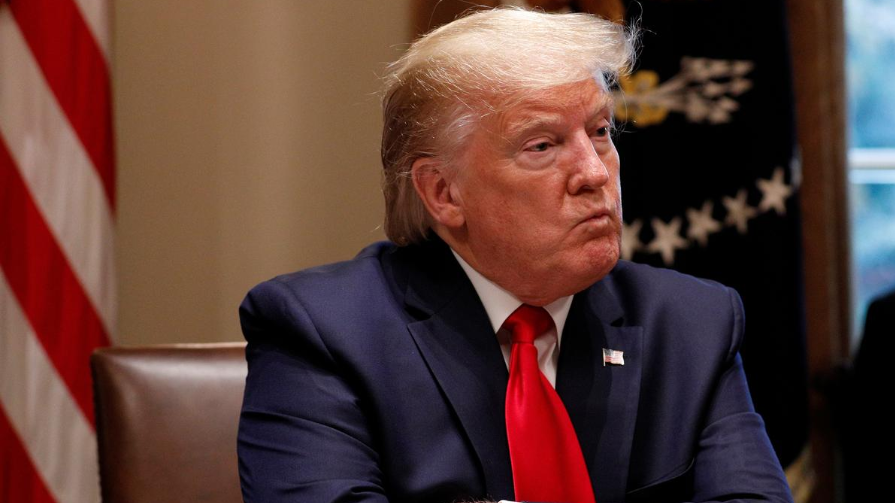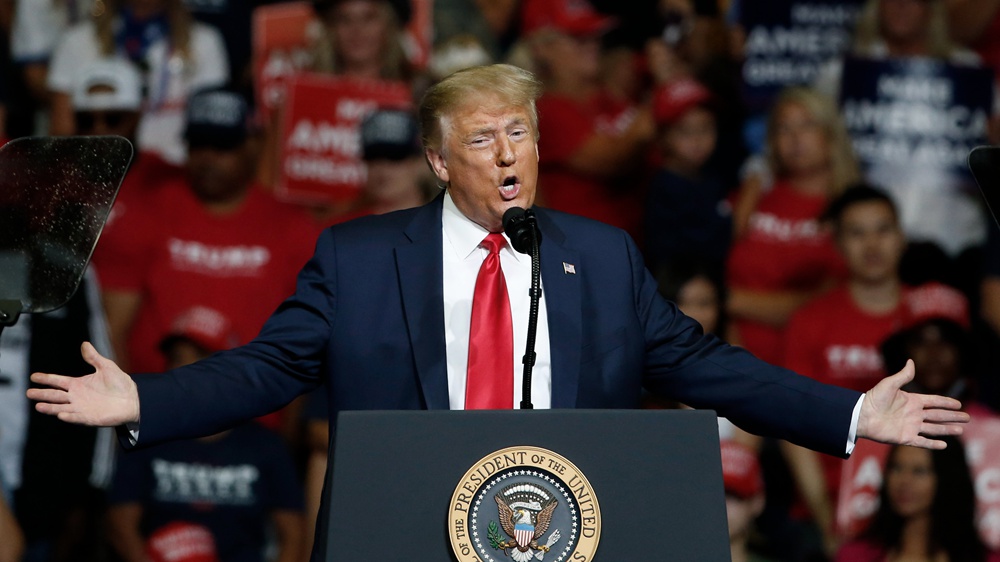
In what many believe is an attempt to divert attention from a sluggish White House response to the COVID-19 pandemic, U.S. President Donald Trump has been relentlessly blaming China for the coronavirus havoc that claimed more than 100,000 American lives. Yet despite Trump's perpetuation of these evasive tactics, it appears that Americans are not falling for his narrative.
From U.S. media's reporting to the remarks of scientists and politicians, what seems to resonate more within these circles is recognition of China's efforts to fight the pandemic. Democratic Congresswoman Jackie Speier, who praised China's "Discipline" on COVID-19, was one of the politicians rejecting Trump's account.
"You look at China with so much more in terms of population, for times as much in population, and they're faring much better because they have shown the kind of discipline necessary to address this," Speier told MSNBC on Monday.
She also went on to criticize Trump for promulgating false information.
"Unfortunately, the president brings us into this parallel universe, where he talks about hydroxychloroquine as if that's going to be a solution, and then we find out that can actually hurt people and create heart problems," she said.
But Trump is not budging. The length to which Trump has gone to pursue an anti-China agenda is best exemplified by his preference to term the coronavirus. He is known to have been inserting China's name in the COVID-19 crisis by using or even inventing phrases that contain racist connotations when referring to the coronavirus. Last month, Trump went beyond his common use of terms like the "Chinese virus" or the "Wuhan virus", and began characterizing the coronavirus as "kung flu".
"It has more names than any disease in history. I can name kung flu. I can name 19 different versions of names," Trump said at a campaign rally in Tulsa, Oklahoma.
00:17

While Trump has been repeatedly using this type of offensive language, a recent poll found that his rhetoric does not sit well with most Americans.
According to a survey by The Hill and HarrisX, 66 percent of U.S. registered voters think it is inappropriate to refer to COVID-19 as "kung flu" or "China virus", and just 34 percent think it is appropriate to use these terms.
Response to the poll also indicates a sharp partisan divide, with a predominant majority of Democrats (83 percent), along with a sizable majority of Independents (66 percent), finding the terms ill-fitted while a slight majority of Republicans (56 percent) suggesting otherwise.
The poll also found that most of those who approve of the president (62 percent) recognize the properness of these terms, while 38 percent of Trump backers disagree.
Voters who disapprove of the president were found to be more likely to reject the terms, as 89 percent say the terms are inappropriate and just 11 percent say they are appropriate.
Inspiring racism
Though the survey reflected a largely dismissive attitude towards these phrases, it showed that Republicans and Trump-supporters have the tendency to embrace this language, and civil liberties organizations also warned of the detrimental effects of Trump's promotion of this language - inspiring racism and violence against Asian Americans.
Cecillia Wang, deputy legal director of the American Civil Liberties Union, wrote that attempts to blame China "lead to dangerous scapegoating and widespread ignorance, just when accurate public health information is critically needed".
According to the data that advocacy groups provided to CBS News, at least 2,100 anti-Asian American hate incidents related to the coronavirus were reported across the United States over a three-month time span between March and June. Such incidents, which dreadfully affected ordinary citizens' lives, ranged from workplace discrimination, online harassment, verbal assaults to physical attacks.
The advocacy groups also found that the assailants displayed a similar pattern that indicated a correlation between these incidents and Trump's racist rhetoric, as some had shown virulent animosity of China and had parroted the "Chinese virus" term.
"(The data) indicates the racist rhetoric coming from the highest office in the land is creating a dangerous environment for Asian-Americans," Cynthia Choi, co-executive director of Chinese for Affirmative Action, told CBS.